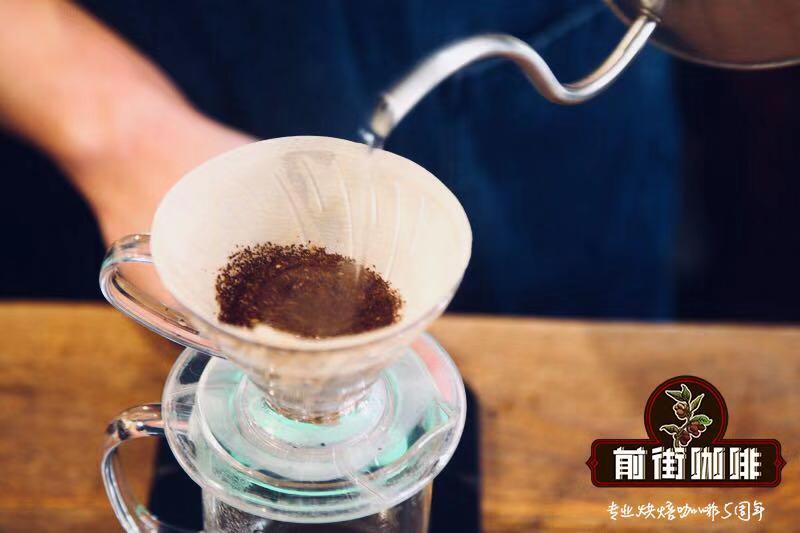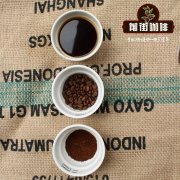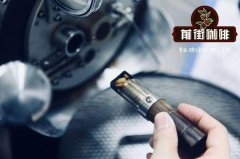How does the name of Kopi Luwak come from? how much is it for Kopi Luwak? how does it taste?

Professional coffee knowledge exchange more coffee bean information please follow the coffee workshop (Wechat official account cafe_style)
Muscat Coffee (Luwak Coffee), also known as Kopi Luwak, originated in Indonesia. Why is it so expensive? This has something to do with the manufacture of coffee beans. The civet eats the ripe coffee fruit, excretes it through the digestive system, and then collects and processes its excrement. The fermentation process in civets and the efficacy of digestive enzymes create a particularly thick and mellow flavor of coffee beans, which makes this kind of coffee very popular in the world.
For Musk Cat Coffee, someone said after drinking it, "with a bit of dirt, slightly choking flavor and visceral flavor, the finish is very long." Others said: "it's hard to swallow, it's a complete gimmick, and it's not worth paying for stinky coffee." The comments are polarized, but on the whole, it has the typical earthy and traditional Chinese medicine flavor of Indonesian coffee, and its consistency is also quite high. Even if it costs hundreds of dollars, some people are willing to pay for the luxury goods of the coffee world.
Coconut cats are cowardly nocturnal animals who take advantage of the night to eat ripe coffee fruits during a bumper harvest on coffee plantations. However, they cannot digest the seeds, that is, coffee beans, which are excreted in their faeces. These coffee beans have a unique taste, and when the farm workers discovered it, they began to be widely respected.
Because coconut cats are wild, the number is very rare, feces are difficult to collect, and the quality of coffee beans harvested in different periods is different, so Kopi Luwak used to be regarded as an interesting coffee treasure.
The annual output of coffee made by picking up the droppings of wild civets is only about 500 kilograms in Indonesia.
But coffee companies and coffee merchants around the world are still using the original story of coconut cats eating coffee beans on coffee farms as a gimmick to peddle Kopi Luwak. And use this scarcity to justify its high price (Kopi Luwak usually sells for $200,400 per kilogram, sometimes more). In fact, although exact figures are not available, it is possible that Kopi Luwak's annual global production is at least 50 tons, much more, according to Tony wild estimates. Now farmers in India, Vietnam, China and the Philippines have joined the production of Kopi Luwak.
The locals captured the coconut cats and imprisoned them in small cages, artificially forcing them to eat too much coffee fruit (equivalent to drinking more than 100 cups of espresso a day) and feeding large amounts of fruit pulp to speed up excretion. But even so, coconut cat farmers do not make much money, because huge profits have been swallowed up by intermediary dealers for a long time, prices are controlled by middlemen, and farm conditions are very poor. so it aggravates the miserable fate of coconut cats.
The Kopi Luwak Initiative
Also known as: Muscat Coffee
It's one of the most expensive coffee in the world.
The price per pound is as high as 3000 yuan.
Some restaurants sell a cup for as much as 600 yuan.
END
Important Notice :
前街咖啡 FrontStreet Coffee has moved to new addredd:
FrontStreet Coffee Address: 315,Donghua East Road,GuangZhou
Tel:020 38364473
- Prev

What are the three major coffee varieties in the world? what is the flavor and taste of Liberian coffee?
Professional coffee knowledge exchange more coffee bean information please follow the coffee workshop (Wechat official account cafe_style) according to botany or coffee bean species to classify, in fact, there are more than 60 kinds of coffee! There are also 25 artificially selected and cultivated species, but only a few of them are available for commercial use, and these three are known as Liberia (big fruit), Robusta (middle fruit) and
- Next

The source of Vietnamese Kopi Luwak Vietnam Kopi Luwak is true or false
Professional coffee knowledge exchange more coffee bean information Please follow the coffee workshop (Wechat official account cafe_style) Kopi Luwak is produced by the Indonesian coconut cat (a kind of civet cat) feces as raw material, so it is called Kopi Luwak. This kind of animal mainly feeds on coffee beans. After fermentation in the coconut cat's stomach, it destroys the protein and produces short peptides and more free amino acids.
Related
- Beginners will see the "Coffee pull flower" guide!
- What is the difference between ice blog purified milk and ordinary milk coffee?
- Why is the Philippines the largest producer of crops in Liberia?
- For coffee extraction, should the fine powder be retained?
- How does extracted espresso fill pressed powder? How much strength does it take to press the powder?
- How to make jasmine cold extract coffee? Is the jasmine + latte good?
- Will this little toy really make the coffee taste better? How does Lily Drip affect coffee extraction?
- Will the action of slapping the filter cup also affect coffee extraction?
- What's the difference between powder-to-water ratio and powder-to-liquid ratio?
- What is the Ethiopian local species? What does it have to do with Heirloom native species?

